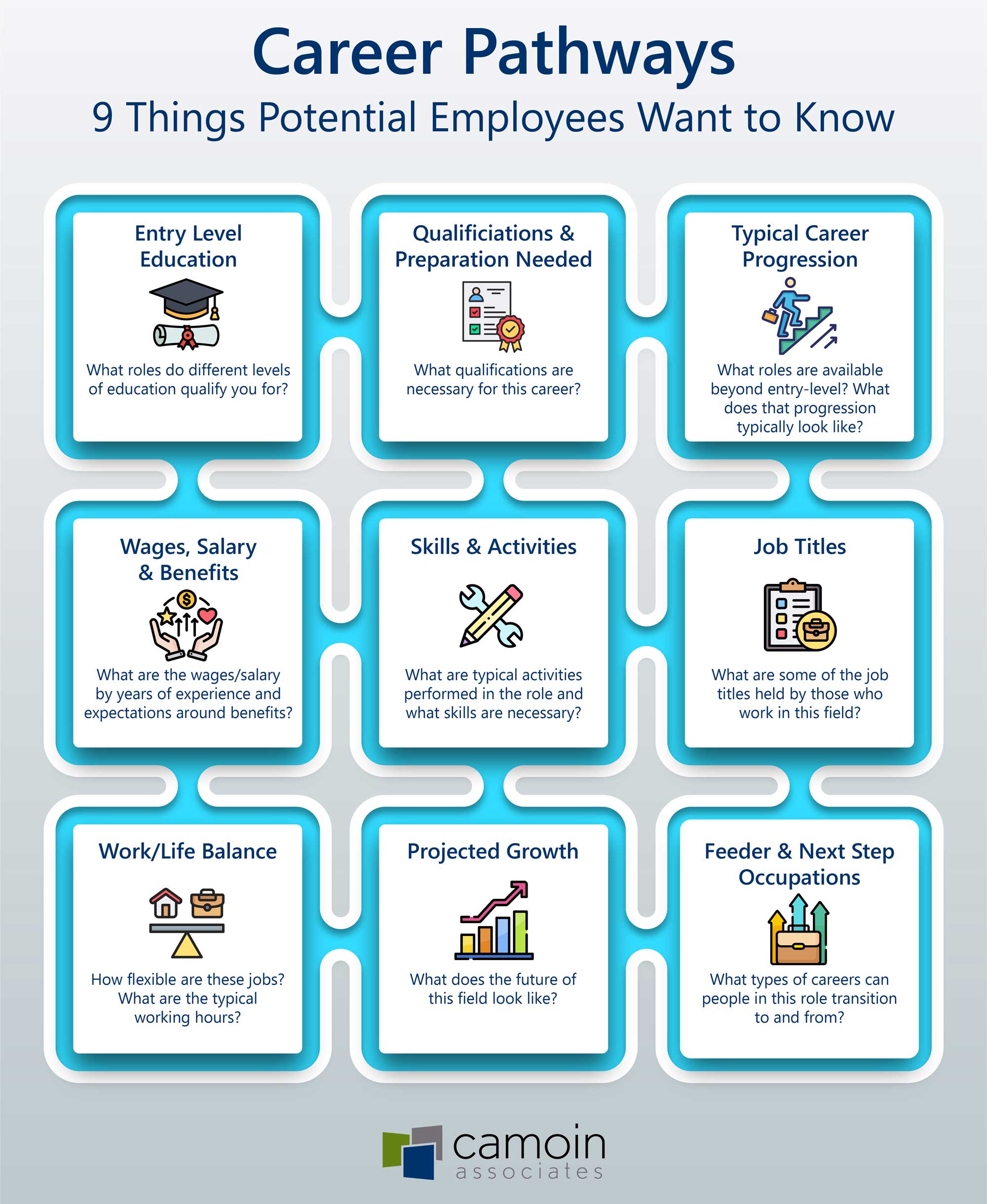For years, Camoin Associates has helped our clients understand how to successfully attract and retain talent from across the economy. In doing so, we have learned what information matters most to prospective employees when deciding if a particular job or career pathway is right for them.
I have summarized this knowledge into this simple Career Pathways guide for employers and workforce development professionals. This information should be provided to applicants in job listings/descriptions and during the interview and hiring process. It should also be clear and accessible to existing employees throughout the duration of their employment.
Employers benefit from providing transparent career pathway information because it allows employees to hit the ground running, ensuring that they are prepared with the skills, knowledge, and qualifications to perform their respective roles. A clear understanding of a job’s work/life balance, salary, and advancement opportunities can also create more satisfaction and loyalty among employees.
It is especially helpful to include these types of details when recruiting for harder-to-fill jobs that may not be well-known to jobseekers, sound unappealing at first glance, or bring to mind outdated stereotypes. This includes careers in manufacturing, agriculture, food production, construction, and more.
Career pathway information can help jobseekers and employees make informed decisions about their future and ensure they are prepared with the necessary skills and qualifications to achieve their long-term career goals.
Career Pathways: 9 Things Potential Employees Want to Know (PDF)




